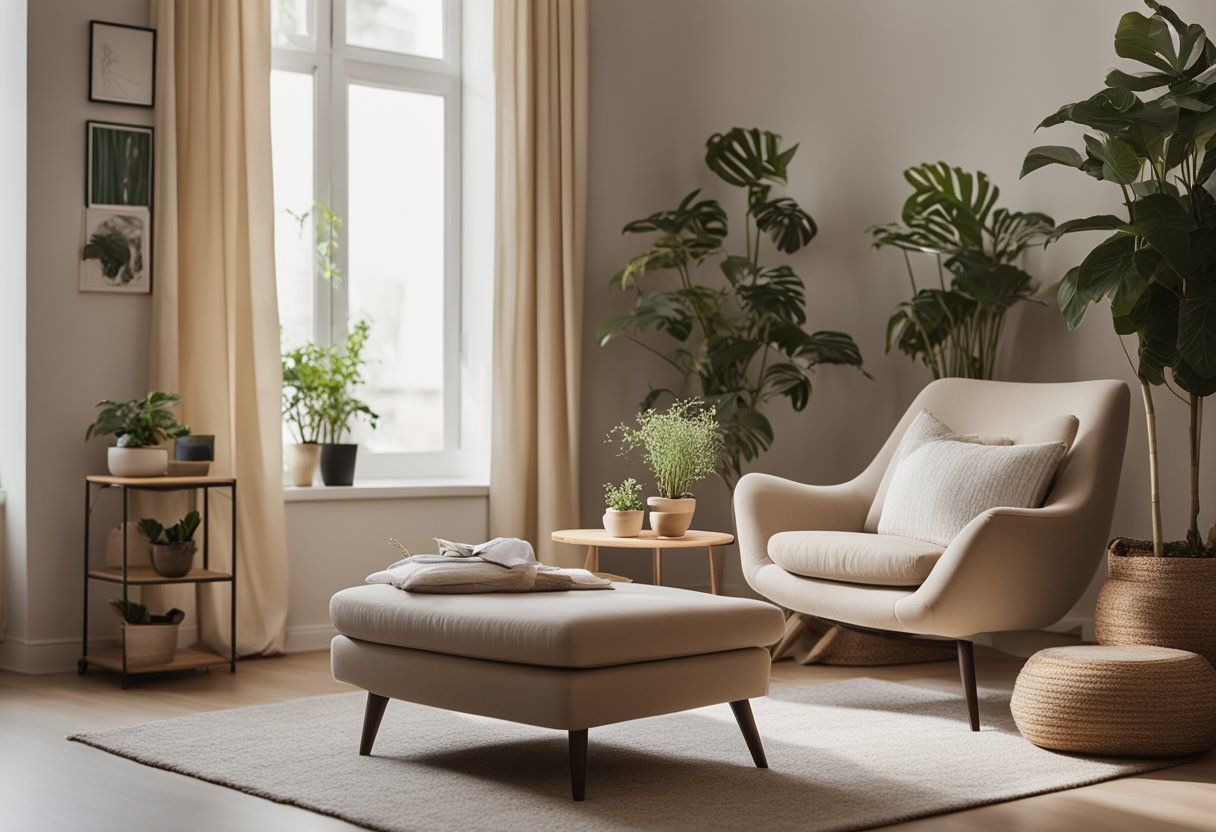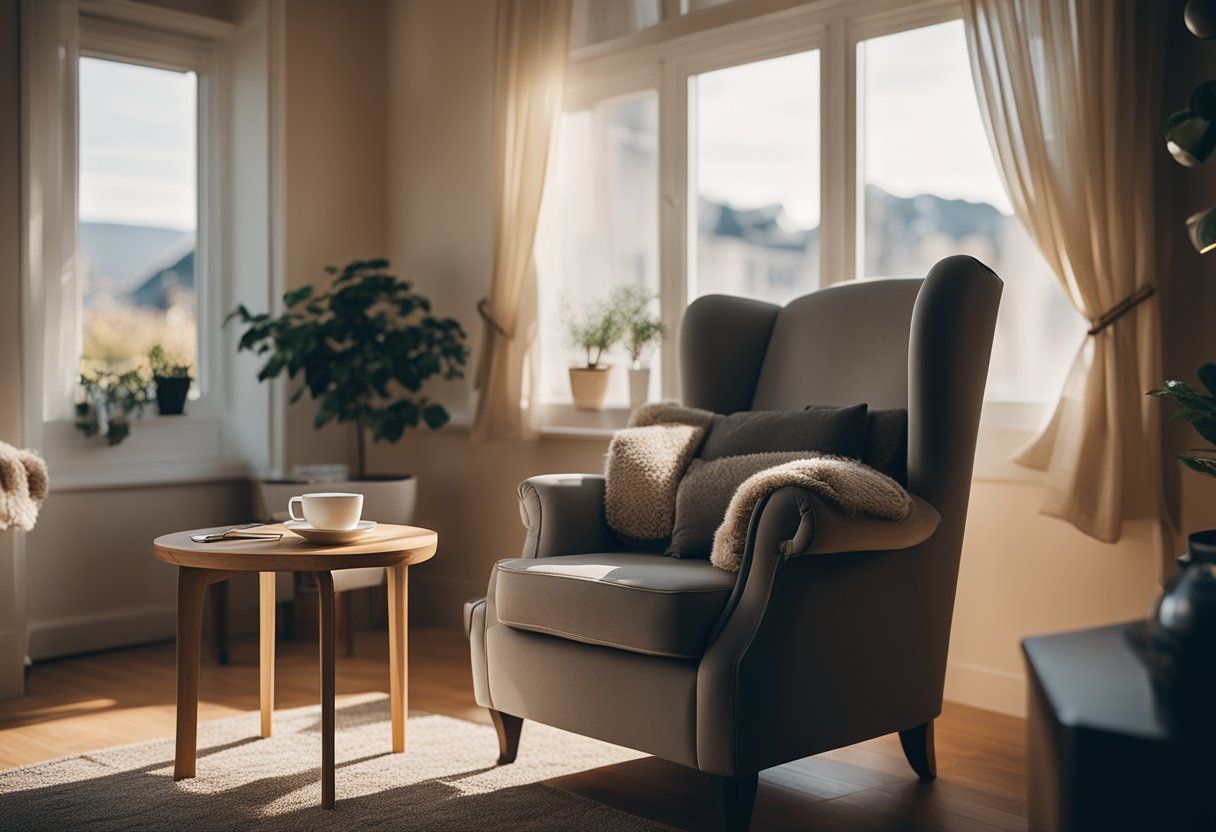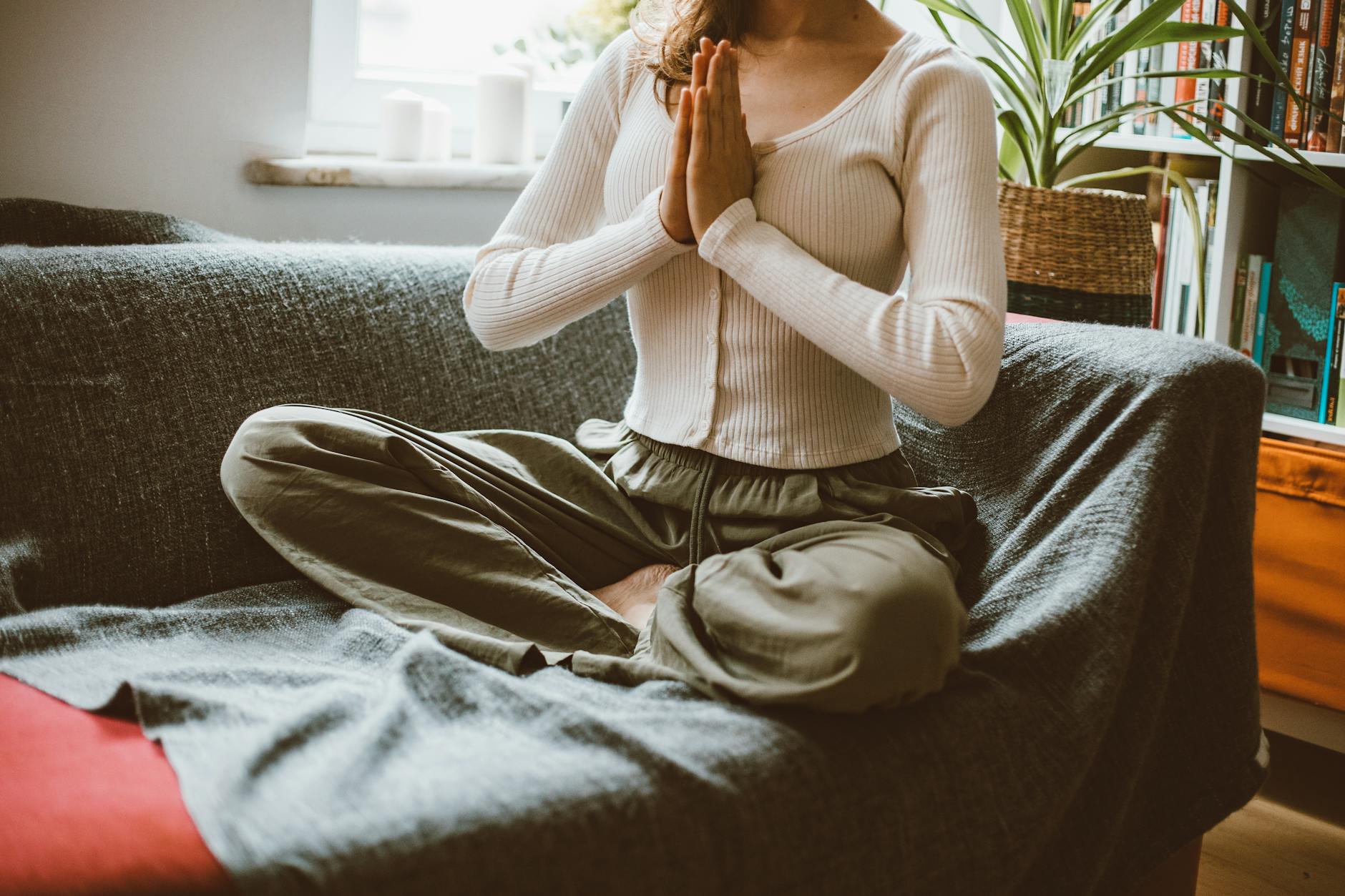Mindful Living Tips for Introverts: Practical Strategies for a Calmer Life
For introverts, finding harmony in an often chaotic world can be challenging. Mindful living practices offer introverts a path to reconnect with their inner selves and nurture their well-being.

Asher Blythe
Mindfulness Coach & Author
For introverts, finding harmony in an often chaotic world can be challenging. Mindful living practices offer introverts a path to reconnect with their inner selves and nurture their well-being. By consciously managing energy and environment, introverts can thrive while maintaining the personal space they cherish.

Incorporating mindful living tips into daily routines allows introverts to navigate social settings with ease and confidence. This approach not only enhances self-awareness but also fosters a deeper connection with their surroundings. Simple practices such as setting boundaries and creating calming spaces provide introverts with the mental clarity they need.
Adopting mindful habits tailored for introverts can transform their interactions and enhance their quality of life. Recognizing personal triggers and allowing time for reflection can be incredibly empowering. By embracing these strategies, they can cultivate a lifestyle that balances both personal solitude and social engagement.
Understanding Mindfulness
Mindfulness involves being present in the moment, focusing on emotions, thoughts, and sensations objectively. This technique offers emotional balance and reduces stress.
The Basics of Mindfulness
Mindfulness encourages awareness of the present without judgment. It can be practiced through meditation, mindful breathing, or simply by being attentive in daily activities. Meditation is a common way to practice, centering around focusing on the breath or a particular thought to cultivate presence and clarity.
Another simple technique is mindful breathing, where attention is given to the natural rhythm of breathing. Even brief moments of mindfulness can help refocus and calm the mind. Consistent practice can improve concentration and increase resilience in daily life.
Benefits of Mindful Living
Practicing mindfulness offers numerous advantages for mental and physical health. It reduces stress, lowers anxiety, and can even improve sleep. Lowering stress levels through mindfulness helps stabilize emotions, providing a sense of calm.
Mindfulness fosters better focus and cognitive flexibility. This can enhance productivity by promoting clear thinking and better decision-making. Physical health may also benefit, as mindfulness practices can reduce blood pressure and support immune function. Integrating mindfulness into daily life promotes well-being and can create lasting positive changes.
Introversion Explained
Introversion is a personality trait characterized by a preference for inner thoughts and minimal social interaction. Introverts often recharge through solitude and may find excessive external stimuli overwhelming.
Characteristics of Introverts
Introverts tend to value deep, meaningful interactions rather than superficial social gatherings. They often focus on introspection and creative pursuits. Sensitivity to external stimuli can lead them to seek quieter environments. Energy for introverts is often replenished through time alone, and they may feel drained after social events. Unlike extroverts, they might prefer written communication over verbal exchanges. Introverts can excel in tasks requiring attention to detail and focus, making them well-suited for roles requiring careful planning.
Common Misconceptions
There are misconceptions about introverts being shy or antisocial, yet this is not universally true. Shyness relates more to fear of social judgment, while introversion is about energy orientation. Introverts can be passionate and assertive in small group settings. The stereotype of introverts as poor communicators is misleading. They often engage deeply once comfortable and prefer thoughtful conversations. Believing introverts lack leadership skills due to their quiet nature is misguided. Many successful leaders possess strong introverted qualities.
Creating a Mindful Home Environment

Introverts thrive in environments that allow for peace and reflection. A mindful home should focus on creating spaces that reduce noise and clutter, prioritizing tranquility and simplicity.
Quiet Spaces
Designating quiet areas in a home is essential for introverts. These spaces should be away from high-traffic zones and sources of noise. Soft furnishings such as cushions and throws can absorb sound, contributing to a serene atmosphere. Consider using noise-cancelling materials like heavy curtains and carpeting.
Natural elements such as plants and water features can enhance the calming effect. Low-maintenance plants are ideal, providing both beauty and air purification. A small indoor fountain can offer soothing background sounds. This encourages a peaceful mindset conducive to mindfulness practices like meditation and journaling.
Clutter-Free Living
Maintaining a clutter-free environment supports a clear mind. Organizing spaces with practical storage solutions prevents the accumulation of unnecessary items. Shelving units, baskets, and drawers can help keep belongings tidy and accessible. Open spaces are vital, so avoid overfilling rooms with furniture.
A minimalist approach encourages thoughtful purchasing decisions. By selecting pieces with both function and aesthetic appeal, one can maintain a harmonious setting. Regular decluttering sessions, focusing on donating or discarding unused items, ensure the home remains a stress-free haven.
This simplicity fosters a mindful mindset, essential for enriching relaxation and personal reflection.
Mindful Daily Routines

Incorporating mindfulness into daily habits can greatly enhance an introvert’s day by fostering relaxation, focus, and self-awareness. Practicing intentional routines can build a calming structure to guide them through the day with more ease.
Starting the Day
A calm and intentional start to the day sets a positive tone. Introverts benefit from a peaceful morning ritual. Gentle stretching or yoga for a few minutes can awaken the body. They should prioritize a nourishing breakfast in a quiet environment to fuel both body and mind.
Deep breathing exercises, even for just five minutes, help clear mental clutter. Incorporating affirmations can also inspire positive thinking. It's beneficial to limit digital distractions. Instead of immediately checking emails or social media, he or she might begin the day unplugged and present.
Work and Study Habits
At the core of productivity is a focused and mindful workflow. Introverts excel in environments that allow for deep concentration. Setting specific time blocks for work or study can minimize distractions and maximize output. Creating a clutter-free and personalized workspace can further reduce stress.
Mindful breaks are essential. Short walks outside or short meditation sessions can refresh cognitive abilities and reduce fatigue. He or she may find value in lists or planners to organize tasks which aids in maintaining a sense of control over their commitments. Regular intervals of quietude help sustain productivity levels without overstimulation.
Evening Rituals
Wind down in a way that transitions smoothly into rest. Limiting screen time by setting aside gadgets allows the mind to transition away from the day’s tasks. Consider engaging in light reading or journaling to reflect upon the day.
A warm bath or a few minutes of meditation can aid relaxation. These activities signal to the body that it’s time to relax and prepare for sleep. Maintaining a consistent sleep schedule by setting a bedtime routine ensures restorative rest, which can improve overall well-being.
Social Interactions and Boundaries
Introverts seeking mindful living often need strategies for engaging in social interactions while also maintaining personal space. Establishing clear guidelines for navigating social settings and setting healthy boundaries can lead to more fulfilling and stress-free experiences.
Navigating Social Settings
Introverts benefit from planning before attending social events. Understanding the event type and size helps them mentally prepare and decide how much time to allocate. They can focus on meaningful conversations by prioritizing personal connections over group interactions.
It's helpful to identify potential quiet spaces to retreat when overwhelmed. Carrying a book or using a smartphone can provide a buffer in bustling environments. Recognizing when to leave enables introverts to maintain energy without feeling drained. They should trust their instincts about when interactions become too much.
Setting Healthy Boundaries
Setting boundaries involves communicating personal limits clearly and respectfully. Introverts may inform friends and colleagues about preferred communication styles or times for contact. This practice ensures interactions occur during times that are most convenient and comfortable for them.
Knowing when to say no is crucial. Whether it's declining invitations or requests that feel taxing, introverts should prioritize self-care when making decisions. Practicing assertiveness allows them to protect their space without feeling guilty.
Finally, establishing routines for alone time supports mental well-being. Scheduling regular solo activities helps introverts recharge and better enjoy future social engagements.
Mindfulness Techniques for Introverts

Mindfulness is especially beneficial for introverts as it offers quiet, introspective practices that nourish inner peace. Key techniques involve meditation, journaling, and mindful movement to help build self-awareness and manage stress.
Meditation and Breathing Exercises
For introverts, meditation offers a valuable way to recharge and center themselves. This practice encourages a focus on breath, allowing the mind to rest and reset. They can start with simple breathing exercises, such as inhaling deeply for four counts, holding for four, and exhaling for four.
Mindfulness meditation encourages being present with thoughts and sensations, observing without judgment. Apps and guided sessions can aid those just starting, offering structure and gentle guidance. With regular practice, meditation enhances clarity and emotional regulation, creating a balanced mental state.
Journaling and Reflective Practices
Journaling is a powerful mindfulness tool for introverts, providing a private space for reflection. By writing daily, they can process experiences, expressing thoughts and emotions freely. Prompt-based journals guide introspection, helping them explore different aspects of their life without feeling overwhelmed.
They can set aside time each day to write, even if only for a few minutes. This practice not only reduces stress but also fosters self-discovery. Using bullet journals, gratitude lists, or art journals broadens their expressiveness and helps maintain a mindful approach to life.
Mindful Movement and Exercise
Introverts often seek exercise routines that offer a solitary yet fulfilling experience. Mindful movement practices like yoga and tai chi provide this balance, focusing on breath and movement harmony. These activities cater to an introvert's need for introspection and connection with their body's sensations.
Walking meditation is another option, combining the calmness of walking with mindfulness. It involves slow, deliberate steps, enhancing awareness of surroundings and physical states. Such exercises not only improve physical health but also boost mental clarity, supporting a holistic approach to well-being.
Overcoming Challenges

Introverts often face challenges in managing overstimulation and finding value in solitude. Discovering ways to navigate these obstacles effectively can lead to a more balanced and mindful lifestyle.
Dealing with Overstimulation
Overstimulation is a common experience for introverts, particularly in environments with excessive noise or social demands. It's essential to recognize personal limits and set boundaries. Earplugs or noise-canceling headphones can reduce sensory input.
Establishing spaces where they can decompress can be beneficial. Creating a calming environment at home or work with minimal distractions helps maintain focus. Developing a routine that includes regular breaks also supports managing energy levels. Mindful breathing exercises or short walks can serve as quick resets. This proactive approach ensures introverts regain control and avoid burnout.
Embracing Solitude
Solitude is not merely about being alone but about engaging in activities that refresh the spirit and mind. Introverts thrive when they carve out time for themselves. Meditation, reading, or creative hobbies can be fulfilling pursuits.
Journaling offers an opportunity for reflection and self-discovery. It is a chance to process thoughts and emotions without external input. When introverts actively choose solitude purposefully, it becomes a time of personal growth.
Engaging in solo outdoor activities, like hiking or gardening, provides the elements of quiet and tranquility needed for rejuvenation. By embracing solitude intentionally, introverts can harness its restorative power to foster well-being.
Resources and Community
Introverts seeking mindful living can benefit from a wealth of resources and supportive communities. These resources include insightful books and articles, as well as interactive online forums and groups.
Books and Articles
Several books and articles offer valuable insights into mindful living tailored for introverts. "Quiet: The Power of Introverts in a World That Can't Stop Talking" by Susan Cain explores introversion's strengths, encouraging mindfulness and self-care. Similarly, articles from sites like Psychology Today and Mindful Magazine provide practical tips for maintaining mental well-being.
Various self-help and psychology authors delve into mindfulness techniques to help introverts manage social exhaustion. Readers can find guidance on setting boundaries, practicing meditation, and balancing social energy in these works. Exploring diverse perspectives helps introverts identify strategies that suit their unique needs.
Online Forums and Groups
Online forums and groups offer introverts supportive spaces for mindful living discussions. Platforms like Reddit's r/introvert and specialized groups on Facebook allow users to share experiences and advice in anonymous and comfortable environments. These communities provide connections with like-minded individuals who understand introverts' challenges.
Members can engage in conversations about mindfulness practices, exchange tips, and find encouragement. Some platforms also host virtual events, workshops, or book clubs focused on personal growth and mindful living. These interactive spaces foster a sense of belonging, which is essential for introverts seeking comfort and understanding in their mindful living journey.

